Post
A catch
Save a catch to start your fishing logbook. You will be able to to share it with the community if yo want!
A fishing trip
Post an ad to go fishing with other fishermen
Save a catch to start your fishing logbook. You will be able to to share it with the community if yo want!
Post an ad to go fishing with other fishermen
Share a thought, a question with the community
My favorite cities
×Join our 1 fisherman in Van in Boone. The fishing forecast is currently 1.9. The most caught fishes here are the coho salmon, the bluegill, the lake trout and the razorback sucker. Come try the most famous fishing techniques like the fishing for sea bass while surfcasting, gathering seafood by hand, surfcasting or big game fishing.
Our fishing forecast of Van indicates the best time to go fishing in this city.
The Coho Salmon
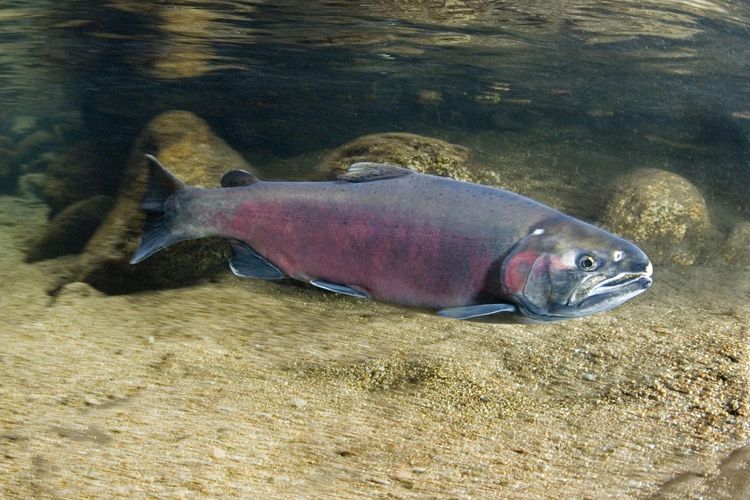
The Coho Salmon belongs to the Salmonidae family. it measures about 71 cm by 5 kg in general. They have a life expectancy of 5 years. They spawn from September to January. They can be captured from July to October. During their ocean phase, coho salmon have silvery sides and a dark blue back. After entering fresh water, they develop bright red flanks, blue-green heads and backs, a dark belly and dark spots on the back. Sexually mature fish develop a pale pink or pink shade along the belly, and males may have a slight arch on the back. Mature adults have a pronounced red skin color with a darker back.
The Coho Salmon is a famous fish you can catch in Van.The Bluegill
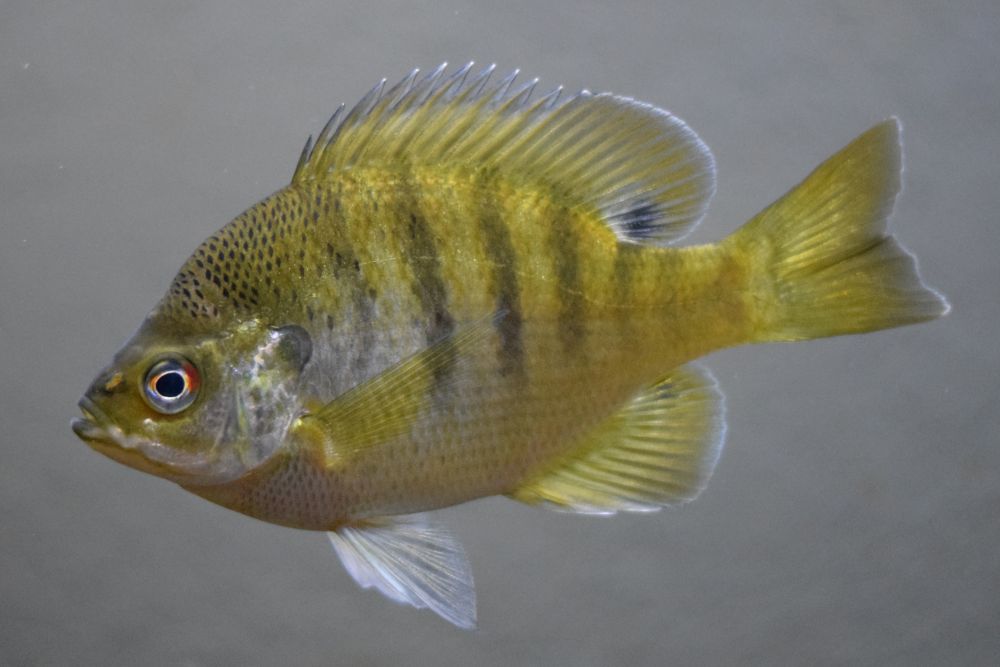
The Bluegill belongs to the Centrarchidae family. Adults are between 10 and 15 cm long but can reach 41 cm. Bluegill usually lives 4 to 6 years. Spawning season for bluegill begins in late May and continues until August. They can be caught from spring to summer. Like other cramps, bluegill have a very deep and flattened body. In other words, they are "large" and "flat". They have a small mouth on a small head. The dorsal fin is continuous, with the thorny anterior part and the soft, round posterior part with a dark touch at the base. The caudal fin is slightly forked but rounded. The body is mainly olive green with a yellowish underside. Their name "bluegill" comes from the shimmering blue and purple region on the cover of the cheeks and gills (operculum). A careful examination reveals six to eight vertical olive bars on the sides.
The Bluegill is a famous fish you can catch in Van.The Lake trout
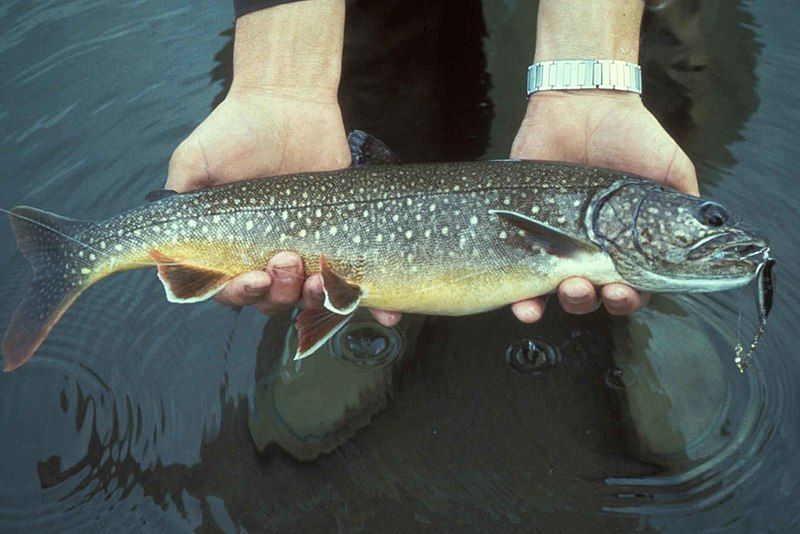
The Lake trout belongs to the Salmonidae family. The average size is 68 cm for 3 kg. It has a lifespan of 12 years. It spawns in fall. It can be fished all year round. Lake trout have a deeply forked caudal fin and a slate-grey to greenish grey body with a lighter underside. Cream to yellow spots are usually present on the head, body, dorsal and caudal fins. Lower fins are orange-red with a narrow white edge. Younger fish will have between seven and twelve marks of broken parr along their sides. The species supports nine to twelve gills and, unlike its cousin the brook trout (Salvelinus fontinalis), lake trout do not have a black band on the front edge of their anal and pelvic fins. Breeding males develop a dark lateral band on their sides.
The Lake trout is a famous fish you can catch in Van.The Razorback Sucker
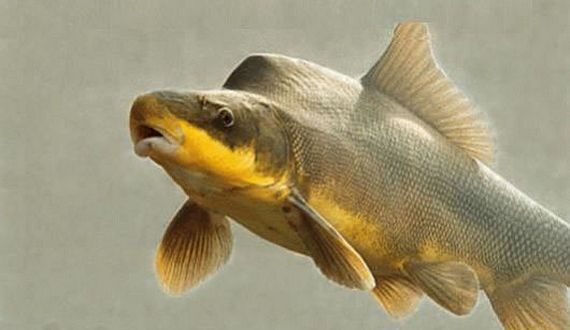
The Razorback Sucker belongs to the Catostomidae family. It is a relatively large catostomidae, reaching more than 91 cm in length and weighing 5 to 6 kg. It has a lifespan of 50 years. It nests from January to June. It cannot be fished because of its status as an endangered species. Razorback suckers are similar to other Catostomidae, with the exception of two main characteristics. The most characteristic features of the razorback sucker are a pronounced edge made of neural and internal bone that extends from the head to the dorsal fins, as well as elongated filaments on the gills. Females have a lower keel. Well-developed filaments are made for zooplankton feeding. It has a long snout, a long rounded head that is ventrally compressed and a ventral mouth with a split lower lip. There is 12 to 15 rays on the dorsal fin and the anal fin has 7 rays. Pelvic and anal fins are longer in males. It has an almost straight lateral line with 68 to 87 scales.
The Razorback Sucker is a famous fish you can catch in Van.The Bronze Bream
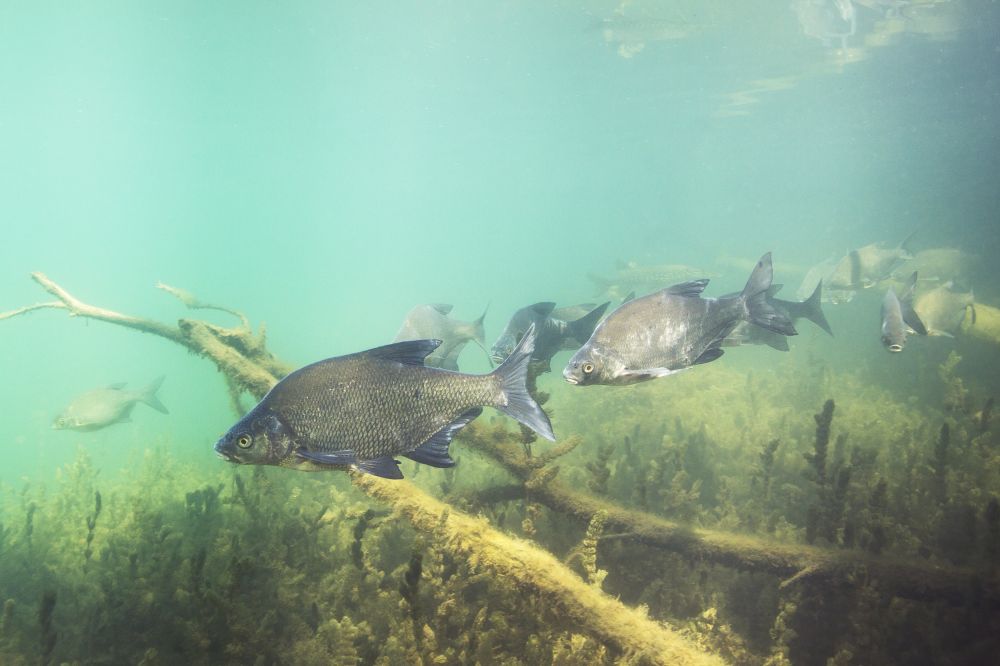
The Bronze bream belongs to the Cyprinidae Family. The current catch size varies between 30 and 50 cm, for a weight of 0.5 and 2.5 kg. Some individuals can reach a maximum height of 80 cm for a weight of 7 kg. It lives between 20 and 25 years. It reproduces between April and June and lay 100,000 to 300,000 eggs. The Bronze Bream can be fished all year round in 2nd category streams and is not hard to catch with the right bait. In Europe, there are 2 or 3 types of bream, 5 species and 2 subspecies. The Bronze bream has a very high and strong body flattened laterally. The bushy back, especially in older individuals, is characteristic of this fish. Its body is covered with large scales and mucus. The Bronze bream has a fairly small eye compared to the size of the muzzle. The mouth is small, oblique, barbless and protractile. The upper jaw protrudes beyond the lower jaw. Teeth are subject to seasonal replacement. The anal fin is very long and has 23-30 soft rays. On the other hand, the dorsal fin is short and inserted behind the pelvic fins. The caudal fin is very indented with the lower lobe longer than the upper lobe.
The Bronze Bream is a famous fish you can catch in Van.Our fishing forecast of Van indicates the best time to go fishing in this city.
Our fishing forecast of Van indicates the best time to go fishing in this city.
Our fishing forecast of Van indicates the best time to go fishing in this city.
